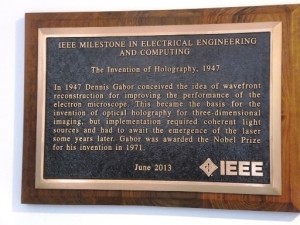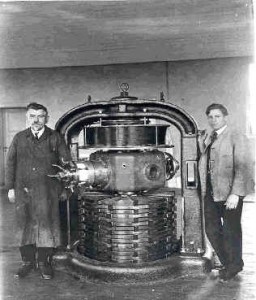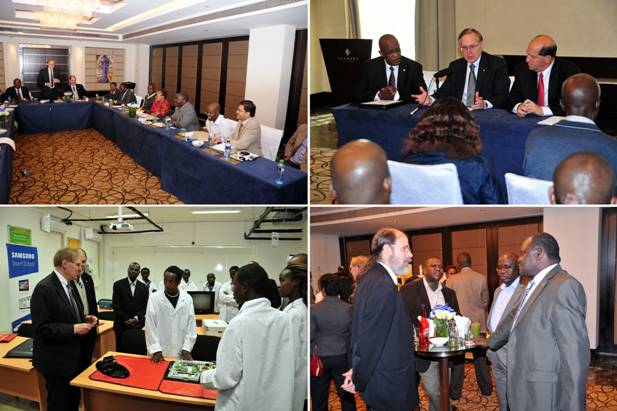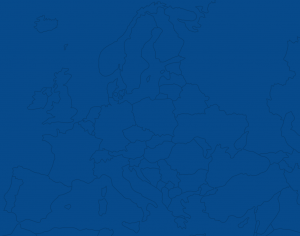A Region 8 Beginner’s Guide to IEEE History Milestones

The IEEE GHN website is now a part of ethw.org (engineering+technology wiki) and has an explanation of the process of submitting a proposal for an IEEE History Milestone, and provides a list of answers to some FAQs. However it seems that there is not a good understanding of the procedure among members and even active volunteers across Region 8. This document is therefore provided as an introduction and supplement to the available information.
What they are
The IEEE Historic Milestones are recognitions of significant inventions or achievements in the field of interest of IEEE which is considered to have had an important impact. The invention or achievement must have taken place at least 25 years ago. There is no upper limit, e.g. it can be, and often is, long before the origin of IEEE (or its AIEE and IRE predecessors).
The Milestones are not a recognition of or award to a person, although often the particular invention or achievement is inseparably associated with a specific person (for example, Holography with Dennis Gabor, the Poulsen Arc with Valdemar Poulsen or Maxwell’s Equations with James Clerk Maxwell).
The Poulson-Arc Oscillator Used for Radio Transmitters, Denmark, 1902 
Evaluation and Approval
It is inevitable that in some cases there are differences of opinion among historians about the originator of something important, for example the answers to such questions as ‘”Who invented radio?”, “Who invented the telephone?”, “Which was the first computer?” Answers provided may depend upon nationalistic or political influences.
A rigorous evaluation of proposals for IEEE History Milestones is therefore important, and as a result the time between an initial proposal and the final approval by the IEEE Board of Directors takes typically a couple of years. Adjustment of the proposed title or citation may be necessary and there is then an additional time needed to order, cast in bronze and ship the plaque to the destination in readiness for the installation and dedication ceremony (at which it is usual for the IEEE President or other senior IEEE volunteers to be invited).
Consequently, to see the process through from the first idea to a successful conclusion needs patience and at least one enthusiastic ‘champion’ who will oversee the activity.
The Process: access to the GHN Website
Proposals for IEEE History Milestones are submitted via the IEEE Global History Network (GHN) website within the ETHW website. The champion must therefore have Login permission. All IEEE members can easily get this, by clicking on ‘create an account’ on the Home Page, and choosing an ID name and password, which should be activated within one business day. Note that this is NOT the name/password which is used for the member’s IEEE web account. They are completely independent (though a particular user might choose to use the same name and or password for both). Non-members of IEEE can normally also get Login permission, after a review process which may take about a week.
Submission and assessment
The usual procedure is for the champion to enter the proposed title and initial factual data about the proposed Milestone. The information may be entered in stages, with some required data added later as it becomes available. For example, it is necessary to have a letter from the owner of the location where the Milestone plaque is to be installed, confirming their willingness to accept it, and to keep it available and accessible to visitors who wish to view it and from the Chair of the Section which will take long term responsibility for it.
Once the proposal has been entered , it will be monitored by IEEE History Center staff, who can provide advice to the proposer(s). An advocate (often a present or past member of the IEEE History Committee) will be appointed to monitor the progress, seek opinions about its validity, and in due course, make a recommendation about it to the History Committee. Anyone with login access may contribute to the ‘Discussion’ topics about a proposal, which are open for all to see and to comment upon. This is strongly encouraged to ensure the widest possible assessment.
The History Committee normally meets face-to-face twice per year, with the Milestone proposals which are ready for a decision on the agenda. They are then each discussed, and if possible, approved, including the title and citation. The approved proposal then goes to the next meeting of the Board of Directors for endorsement. It is unlikely but not impossible that the Board would not approve or ask for changes, but in case this occurs the order for casting the plaque is not normally placed until after the Board of Directors meeting.
Costs and responsibilities .
The plaque is normally regarded as the responsibility of the Section in which it is located. It might be proposed in the framework of a Society or other IEEE OU, but since it has a geographical location, it is natural that the Section at that location should take the long term responsibility for it. Any exception to this would have to be strongly justified. The Section therefore has to pay the cost of the casting and shipping of the plaque, although naturally there is encouragement to obtain sponsorship both for these costs and for the cost of the installation and dedication ceremony.
It is often appropriate to have some kind of technical lecture or seminar associated with the ceremony and it is an opportunity to seek good publicity for IEEE and its activities.
The location of the plaque may be in a public place or on private property, but it is expected that the owner of the location will provide written assurances that the plaque will remain in place and that bona-fide visitors will be allowed access to see it. Some arrangements for long-term insurance against damage might be needed in some locations.
The location should be as close as possible to the place where the invention or achievement being recognised took place. Because of the passage of time and the possible change of the buildings and activities in the vicinity, this is sometimes impossible and some reasonable alternative has to be devised.
When the milestone has been installed and the dedication taken place, the basic information about it should be readily accessible on the ETHW website, and it should be included on the interactive map of IEEE Milestones. The material submitted during the proposal process remains on the website as a permanent record. It is wise to check the map for possible errors from time to time.
Version 1.3
Prepared by Prof Tony Davies, UK&I Section, in 2013, and then updated on19th February 2017.








